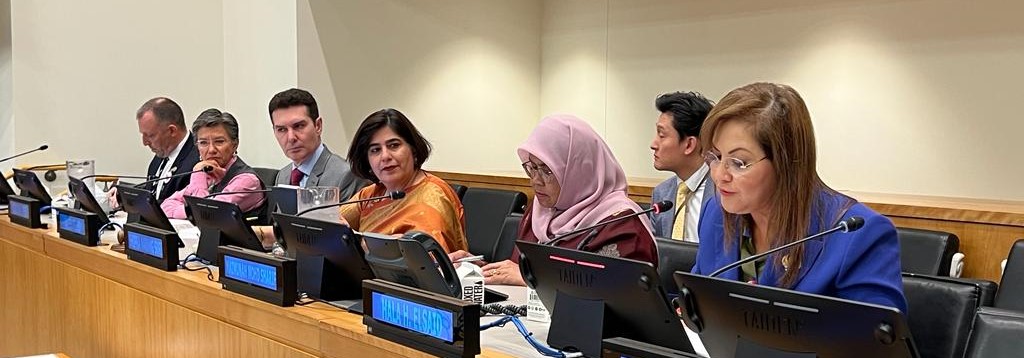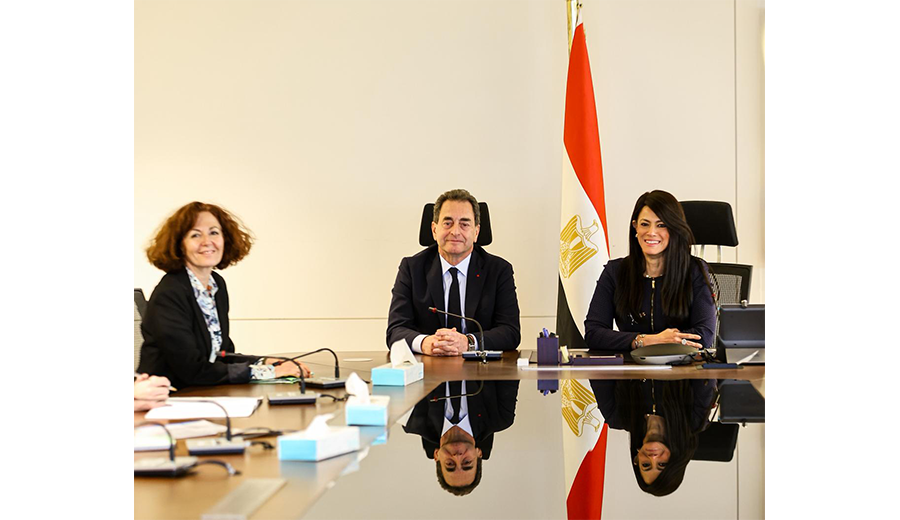During the 2023 SDGs summit in NY:Egypt's Minister of Planning participates in the session “Local Alliance 2030: Propelling Major Transformations and Achieving Sustainable Development Goals by 2030"

18 September 2023
H.E. The Minister of Planning and Economic Development, Dr. Hala El-Said, participated in the session “Local Alliance 2030: Propelling Major Transformations and Achieving Sustainable Development Goals by 2030" as part of the Weekend of Sustainable Development activities held during the UN Sustainable Development Summit, which took place on September 17-19 in New York.
In her speech, the Minister of Planning and Economic Development, Dr. Hala El-Said, spoke about localization as an important enabler of change and Egypt's commitment to establish a Local2030 center in Cairo to advance the localization of sustainable development goals.
El-Said explained that the principle of “Leaving No One or Place Behind" represents the basic principle of the 2030 plan, which is why the Egyptian government prioritized the localization of sustainability goals to address geographical differences and achieve balanced regional development.
El-Said referred to Egypt's efforts to localize the SDGs at the local level and noted the importance of evidence-based policies for more effective implementation of the SDGs, as three of Egypt's governorates prepared their first voluntary local assessments in 2023 to assess progress made.
El-Said added that development plans cannot be implemented without reasonable economic planning. It was explained that this was reflected in the wording of the financial equation according to the standards for allocating resources to the various counties in an objective manner.
El-Said spoke about the "Decent Life" initiative, which is part of Egypt's efforts to improve the quality of life in Egypt's rural communities.
El-Said explained that the initiative has so far benefited 17 percent of the Egyptian population living in the 1,500 villages of the Decent Life project. The total cost is around £350 billion over three years.
El-Said added that based on Egypt's commitment to Africa, Egypt launched the “Decent Life for a Climate Resilient Africa" initiative in cooperation with several African countries and international organizations, where Egypt chairs the Conference of States Parties. United Nations Convention on Climate Change 27 (CoP27).
El-Said emphasized that the localization process brings out many lessons because challenges at the local level require innovative solutions. She added that localization improves coordination at different vertical and horizontal levels and supports policy changes at different levels.
Finally, El-Said emphasized that much attention must be paid to localization because two-thirds of the goals of sustainable development cannot be achieved without the participation of municipalities.
El-Said emphasized that this is precisely why Egypt included nationalization as one of the institutional arrangements and a priority choice in its national obligations to accelerate the achievement of sustainable development goals.









